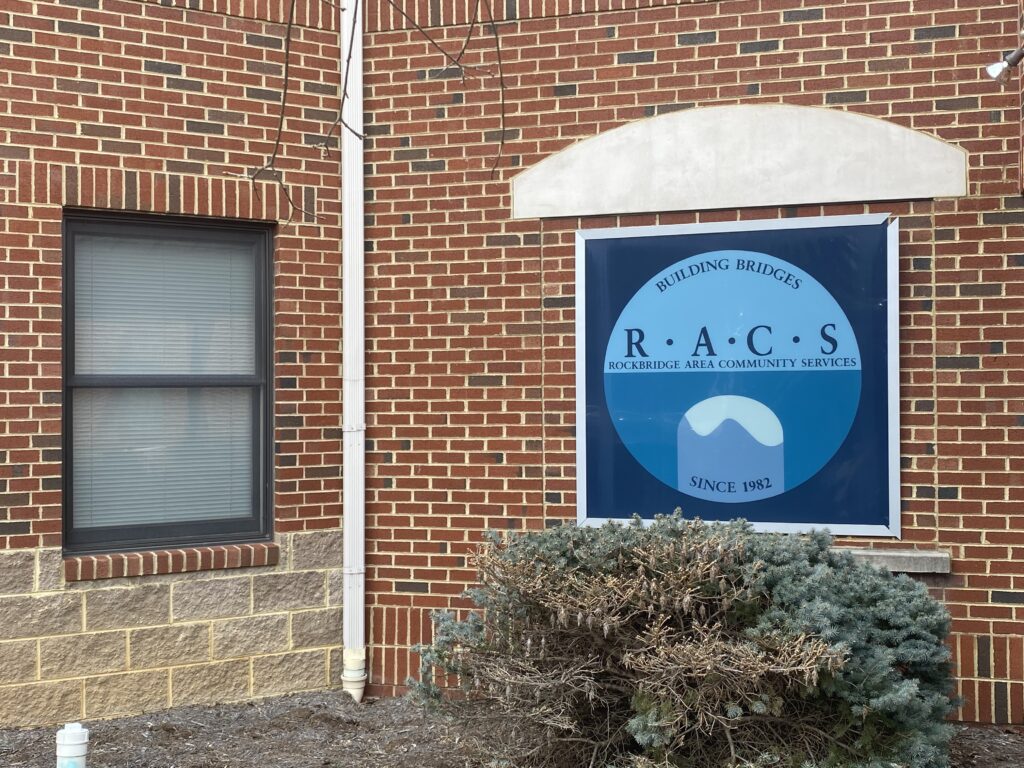
By Avalon Pernell
Six local residents gathered on Zoom earlier this month to learn a new skill—how to administer a lifesaving antidote to a loved one or friend overdosing on opioids.
“We would hope that individuals will never need to use it,” said BreAnne Rogers, the prevention services program manager at Rockbridge Area Community Services. “But I would much rather them have it and not use it then to not have it and really need to use it.”
As the number of fatal drug overdoses climbs across Virginia, RACS is offering free online “Revive!” training to teach community members how to administer Naloxone, a medication that rapidly reverses an opioid overdose. The next session is set for April 13.

“People don’t plan to get addicted to drugs,” said trainer Katherine Smith at RACS’s March 2 Revive! session. “Carrying Naloxone doesn’t make you a bad person. It’s just another tool in your First Aid Kit.”
One participant asked if a cold bath could counter an overdose. But Smith debunked the myth.
“The person is already slowing their breathing,” she said. “So, if you cool them down that’s going to further depress their heart rate.”
Jon Zibbell, a senior public health scientist at RTI International, an independent nonprofit research institute based in Research Triangle Park, N.C., said loneliness created by the effects of the coronavirus pandemic is exacerbated by the influx of fentanyl, an opioid more potent than morphine, into Virginia’s illicit opioid and heroin market.
He said the combination of factors could lead people to overdose more frequently and die at higher rates than before.
“More and more people, at least in my own research, report using alone,” Zibbell said. “And we don’t know yet because we’re in it right now. But I’m thinking that might have something to do with the increases in overdoses.”
Buena Vista has had 10 drug-related overdoses since last March when the pandemic led to shutdowns and limits on gatherings. Keith Hartman, the Buena Vista police chief, said drugs have continued to keep his officers busy.
“Meth and heroin are our two biggest problems,” he said. “These drugs are addictive, and they are lifestyle changing. And after you start you get to a space where you can’t stop and need more and more. That’s why the crimes pick up.”
Lexington police said there were three drug-related overdoses since last March; one victim did not survive. Deputies with the Rockbridge County Sheriff’s office responded to 30 overdoses during the same period.
Hartman said he wishes there were more addiction treatment services available.
“If there were more rehab centers around where we could put somebody, and maybe at least get a small percentage back on track, that would be great,” he said. “But I don’t know who’s going to pay for that … No place around here has any excess cash to throw at things like that, so we rely on the state. And the state doesn’t give you any money for it either.”
“It’s not rocket science. It really is just political will and rethinking how to deliver care in the twenty-first century.” – Jon Zibbell
State Sen. Creigh Deeds, D-25th District, said a lack of treatment facilities is not only impacting Buena Vista.
“When it comes to behavioral health professionals, nearly the whole state is a medically underserved area, even portions of northern Virginia, as wealthy as it is there,” he said. “COVID-19 has created more stress in people’s lives and has made some folks that were maybe already close to the edge go into crisis.”
In 2013, Deeds’ son attacked him before committing suicide, a day after a mental health evaluator failed to find a bed for him in a mental health facility. He said the experience intensified his fight for more funding.
“I felt the desperate need for services for family members,” he said. “I’ve been through the bowels of the system.”
Deeds focused his efforts on writing a bill to create the Behavioral Health Commission. The bill has passed the General Assembly. If signed by Gov. Ralph Northam, it would create a permanent committee focused on mental health and substance abuse. It would replace the Mental Health Services in the Twenty-First Century Joint Subcommittee that Deeds was instrumental in creating after his son’s death. But that subcommittee set to expire at the end of the year.
Zibbell said legislation can make a difference in fighting substance abuse and bringing more treatment options to Virginians.
“It’s not rocket science,” he said. “It really is just political will and rethinking how to deliver care in the twenty-first century.”
